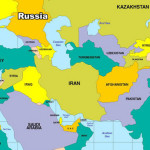On June 19, 2016, I posted a blog titled, Is Pakistan’s foreign policy tweaked? My concluding remarks were, “It is feared that tweaked foreign policy is pushing Pakistan towards isolation. It may be true that Pakistan enjoys geopolitically important position but it has not been able to take advantage of its location. Pakistan needs a vibrant foreign policy and a young and more articulated full-time Foreign Minister. The current advisors are part of past legacies and also see the world with tinted glasses.
Many of my critics termed this a sweeping statement as they still insist that getting the funds from IMF and other multilateral donors is an evidence of the commitment of these institutions towards Pakistan. This support would not have been there had the lenders didn’t have confidence in the ruling junta and economic potential of the country.
My immediate and most candid reply is, “These institutions are there to bail out countries which even face more precarious economic outlook as lending is their business. These institutions never allow any country to commit default. They lend only that much which is enough for the survival of the borrowing countries but the policies are never aimed at making these countries financially strong.
Since the readers are not ready to spend more than a few minutes, I have the following brief assertions to make in support of my apprehension that Pakistan is inching towards isolation. I also believe that many readers may not agree with my inferences but I am sure it can start a healthy debate and let those at the helm of affairs must revisit the policy and come up with a more articulated one.
- Since independence Pakistan’s foreign policy has remained under the foreign policy of the United States. As a result, Pakistan never enjoyed cordial relations with the then USSR and Russia of today.
- Over the last four decades, Pakistan has been fighting a ‘Proxy War’ in Afghanistan. This can be divided into two phases. In the first phase Pakistan along with Taliban fought a war with USSR that was termed Jihad. In the second phase, starting in 2001, Pakistan has been fighting a war with Taliban, a friend turned foe.
- Pakistan has earned hate from various Afghans groups, Taliban as well as Northern Alliance. This paved way for India to enter Afghanistan as a facilitator. The recent alliance of Afghanistan with Iran and India is not liked by the hawks present in Pakistan.
- Since independence in 1947 Kashmir has remained the biggest thorn in the normalizing relationship between Pakistan and India. They have fought three wars and both the countries have attained the status of atomic powers. Every year both the countries spent billions of dollars on the purchase of lethal armaments, only to attain supremacy on each other.
- After the Islamic revolution in Iran, Pakistan’s relationship with the country went into the shadow of foreign policies of the United States and Saudi Arabia. Despite the lifting of sanctions imposed on Iran, Pakistan has not been able to trade with Iran. It has not even succeeded in establishing banking links, a prerequisite for normalizing international trade between the two countries.
- China is often termed time test friend of Pakistan and has been supporting the country in overcoming its economic problems, the latest being CPEC. However, many groups having vested interest are trying to sabotage the project.
These are just a few bullet points that demand the open debate in the National Assembly and Senate of Pakistan. Ironically, the absence of independent ‘Think Tanks’ in the country is a serious problem. It is believed that over 3,000 Think Tanks are operating in the United States, but not even one is operating in Pakistan.